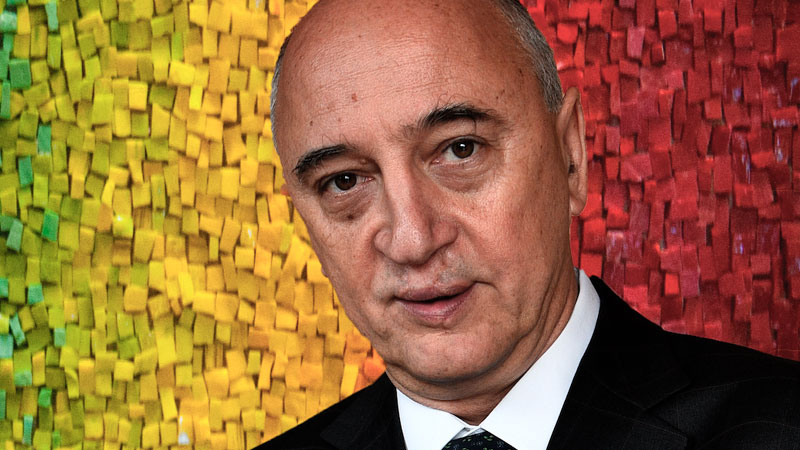Keynote Lecture
Immune changes during COVID-19 pneumonia
During the last months, the outbreak of coronavirus disease 2019 (COVID-19) caused by severe acute respiratory syndrome coronavirus 2 (SARS-CoV-2) has posed a great challenge to the human health, worldwide, with million of infections. We were immediately involved in studying the role of immune system in fighting SARS-CoV2, and have focused our attention on T lymphocytes, B cells and monocytes to investigate the mechanisms underlying the progressive leukopenia observed in patients.
Multiparameter flow cytometry, coupled with unsupervised data analysis, allowed us to find that the T cell compartment in COVID-19 patients with severe pneumonia has several alterations that involve naïve, central memory, effector memory and terminally differentiated cells, as well as regulatory T cells and PD1+CD57+ exhausted T cells.
Friday
October 2, 2020
10:00 -10:50

Several lineage-specifying transcription factors and chemokine receptors are also altered. Terminally differentiated T cells from patients proliferate less than those from healthy controls, whereas their mitochondria functionality is similar in CD4+ T cells from both groups. Dramatic simultaneous increases of proinflammatory or anti-inflammatory cytokines, including T helper type-1 and type-2 cytokines, chemokines and galectins were observed in plasma. We then interrogated B cells in these patients, who displayed normal plasma level of the main immunoglobulin classes, of antibodies against common antigens or against antigens present in common vaccines. A decreased number of total and naïve B cells was found, along with decreased percentages and numbers of memory switched and unswitched B cells. On the contrary, IgM+ and IgM- plasmablasts were significantly increased. In vitro cell activation revealed that B lymphocytes showed a normal proliferation index and number of dividing cells per cycle. Finally, the analysis of monocytes revealed a consistent redistribution of their subsets, with a significant expansion of intermediate/pro-inflammatory cells, a concomitant compression of classical monocytes, and an increased expression of inhibitory checkpoints, including PD-1/PD-L1. Altered bioenergetics and mitochondrial dysfunction was found, that included a reduced basal and maximal respiration, reduced spare respiratory capacity and decreased proton leak.

Full Professor of Pathology and Immunology Vice-Dean of the School of Medicine, University of Modena and Reggio Emilia
Past-President of the International Society For Advancement of Cytometry – ISAC
The Past President of the International Society for Advancement of Cytometry (2020-2022) holds a Master’s degree in Medicine and Surgery from the University of Padua and a PhD in Oncology from the Universities of Bologna and Modena, with a Specialization in Clinical Pathology and Immunohematology from the University of Modena and Reggio Emilia. After working at several different institutions in New York, London, Paris and Los Angeles, Andrea Cossarizza became the Associate Professor of General Pathology and Immunology at the University of Modena and Reggio Emilia in 1998 and became Full Professor in 2010. He is also Director of the School of Specialization in Clinical Pathology and Clinical Biochemistry and Vice Dean of the School of Medicine.
His scientific interests are immune alterations during different human diseases, in particular HIV infection and autoimmune disorders; immunological changes during aging and longevity; and role of mitochondria during apoptosis and importance of mitochondrial DNA in a variety of pathologies.
Andrea Cossarizza is one of the leading authors of the Guidelines of the Use of Flow Cytometry and Cell Sorting in Immunological Studies published in EJI.
During the challenging times this year Andrea Cossarizza puts all his expertise and efforts into studies with patients infected with SARS-CoV-2 virus. As a member of the Modena Covid‐19 Working Group (MoCo19) he has published already in March 2020 the first flow cytometry analysis to answer the question why some patients get infected but do not develop any disease, while others die from this infection. In July Andrea and his colleagues could give first answers by describing “Marked T cell activation, senescence, exhaustion and skewing towards TH17 in patients with COVID-19 pneumonia” and “Expansion of plasmablasts and loss of memory B cells in peripheral blood from COVID-19 patients with pneumonia”.
Email: andrea.cossarizza@unimore.it
Home Institution: University of Modena and Reggio Emilia, Dept. of Medical and Surgical Sciences for Children and Adults, Modena, Italy
Links
University of Modena and Reggio Emilia
Publications
SARS‐CoV‐2, the Virus that Causes COVID‐19: Cytometry and the New Challenge for Global Health
Guidelines of the Use of Flow Cytometry and Cell Sorting in Immunological Studies
